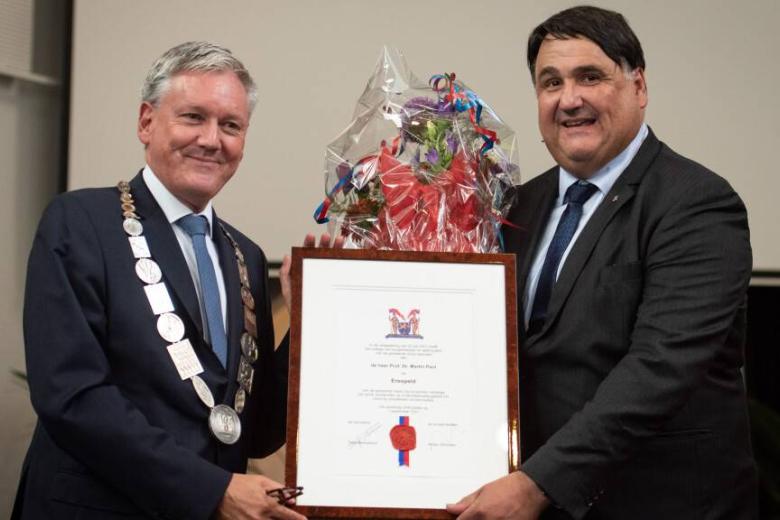Together towards Next Generation Supply Chain Management
In the province of Limburg, there is a substantial number of major international logistics companies as well as a large number of logistics SMEs and start-ups. This is especially the case in the Venlo region. The logistics sector in the province is therefore of great importance. To maintain a leading position, continuous innovation is needed. That is why Maastricht University and the Province of Limburg are joining forces to further develop the logistics sector in the region and in the Netherlands with innovative supply chain solutions. To this end, UM and the province are setting up the Brightlands Institute for Supply Chain Innovation (BISCI). This institute will be located at the Brightlands Campus Greenport Venlo and will be operational beginning in the summer of 2019.
In our current society, transport, logistics and supply chains play an increasingly prominent role in meeting the increasing and often conflicting demands of the end consumer in terms of price, quality, speed/flexibility and sustainability. Getting the right alignment of supply and demand presents the sector with complex supply chain challenges, where the various stakeholders each have their own interests and perceptions. Even in sectors that are not primarily logistical in nature, such as food and health, the role of logistics is becoming increasingly prominent. Innovation is therefore necessary.
Joost van den Akker (Regional Minister of Economic Affairs and Knowledge Infrastructure): “Logistics is an important economic sector in Limburg with many innovative companies. Investing in the logistics hotspot position of Limburg is crucial. Limburg should become the most sustainable, innovative and high-tech logistics hotspot in Europe. This is an ambition that we, together with UM and with other partners such as Fontys, Smart Logistics Centre Venlo and Centrum Logistiek Vakmanschap (Centre for Logistics Expertise), will take on with the Brightlands Institute for Supply Chain Innovation (BISCI).”
Nick Bos (UM Executive Board member): “In the coming years, UM will primarily focus on themes and topics that strengthen connections between the Brightlands campuses and their environments. The emphasis here is on sustainability and sustainable solutions. Supply chain innovation is one such overarching focus area that is relevant to all of the campuses.”
The BISCI works from a holistic vision on supply chain management. Within this vision, the BISCI has four distinct focus areas: logistics, operations, purchasing and marketing. Although these subsectors each have their own scientific foundation, in practice they are becoming more and more integrated and dependent on one another. Solving logistical issues through a holistic and integrated supply chain approach increases the chances of developing innovative solutions.
The objective of the institute is to promote supply chain innovation. To make this possible, cutting-edge research and the training of professionals/leaders is a necessity. The three core activities of the institute therefore consist of: the fostering of supply chain innovation; research and education, and executive training.
The institute pursues smart and sustainable supply chain innovations by developing solutions for market demands that take future generations into account. Co-creation and collaboration with the supply chain ecosystem are at the heart of this. In this respect, the institute focuses on the supply side to establish connections between the individual Brightlands campuses and cooperation with other knowledge institutes in the area of supply chain management. On the demand side, the institute takes into account the characteristic differences between the logistics sector in North and South Limburg and the issues of various parties in the supply chain, such as shippers, logistics service providers and other chain partners in general.
In driving supply chain innovation, social innovation is indispensable. Supply chain professionals in the field will need to be trained and coached to effectively implement technological innovations.
In addition, the future generation of supply chain leaders will have to be trained to guide the necessary logistical transformations in the right direction. Knowledge from the cutting-edge research programmes will form the substantive basis for the training programmes for professionals and the executive programmes for leaders.
Also read
-

-
International gravitational wave laboratory opens in Maastricht
Demissionary Minister of Education, Culture and Science Ingrid van Engelshoven will open ETpathfinder in Maastricht this afternoon. The state-of-the-art physics laboratory will serve as a testing ground for the development of technologies for future gravitational wave detectors.
-
Martin Paul receives city of Venlo's badge of honour
UM President Martin Paul received the badge of honour ('erespeld) of the city of Venlo on 7 September from Mayor Scholten.